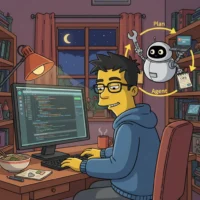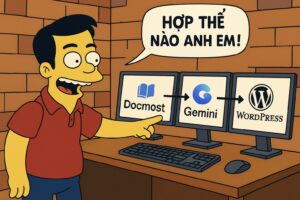Hobbies in the Era of Social Media and AI: From “Tài Lẻ-Talent” to Content Creator peer pressure
👋 The Kid with too many random talents
Hello everyone, it’s Lee Cuong again. For the last few days, I’ve been thinking about this hobbies thing a lot lately, maybe because of boredom, so I write this post for fun!\

You know what’s funny? My Vietnamese friends and coworkers have this phrase for me: “Cương có nhiều tài lẻ”, which basically means “has many scattered talents” or “jack of all trades, master of none.” And honestly? They’re not wrong.
Let me take you back to where it all started…
Picture this: a kid in Vietnam in the late 90s, early 2000s, jumping from one hobby to another like some kind of hyperactive butterfly. One day I’m painting watercolor landscapes and airplanes, the next day I’m hunched over a notebook trying to draw anime characters and robots that looked quite OK to me at the time.
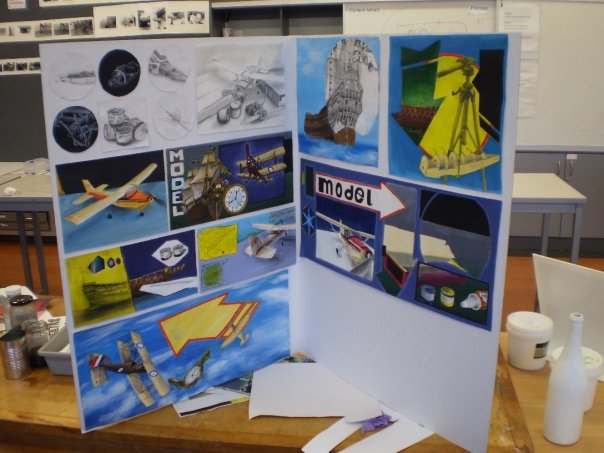
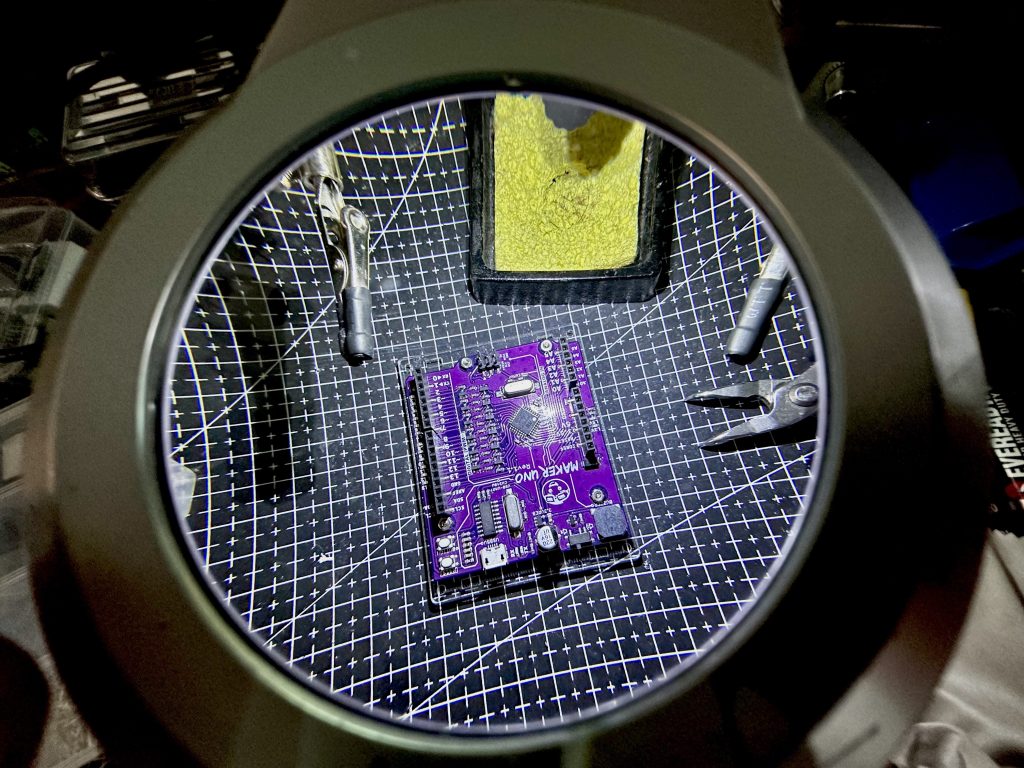
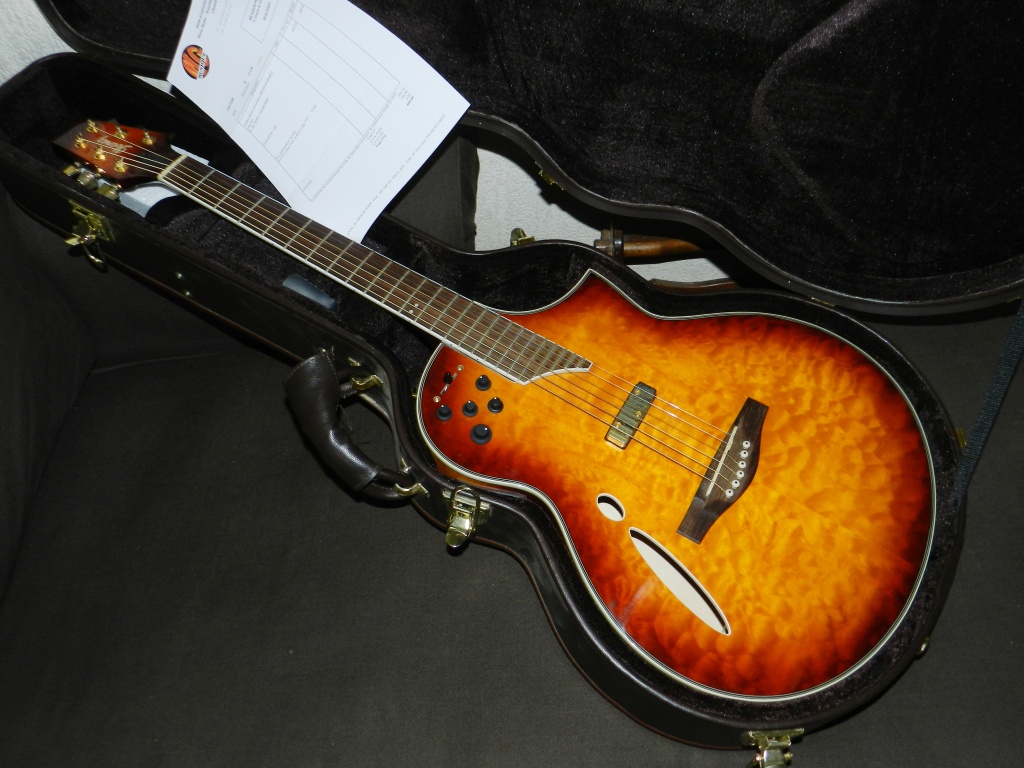
And the computer games… man, when my dad got me that pentium 4 PC, I could spend HOURS, and I mean literal hours, playing games with absolutely zero productive outcome. No game streaming, no content creation, no “building my personal brand.” Just pure, unadulterated fun. Counter-Strike matches that went until the internet shop close, Age of Empires campaigns where I’d build the most beautiful cities just to watch them get destroyed, and don’t even get me started on my massive collection of MP3s that I’d spend days organizing by genre, artist, and mood. Oh and Red Alert, which I found so much fund just teasing the enemy Gold Mine again and again.

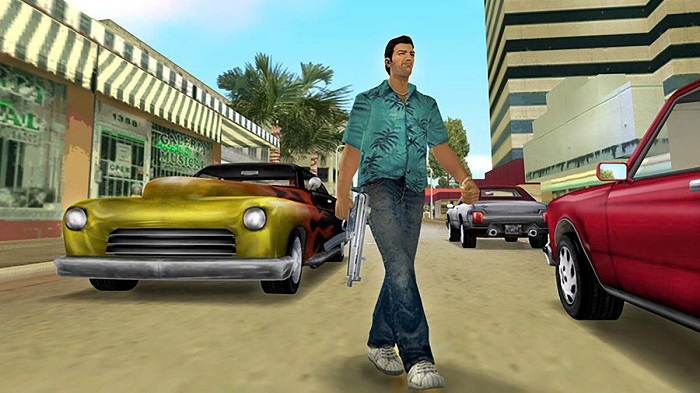
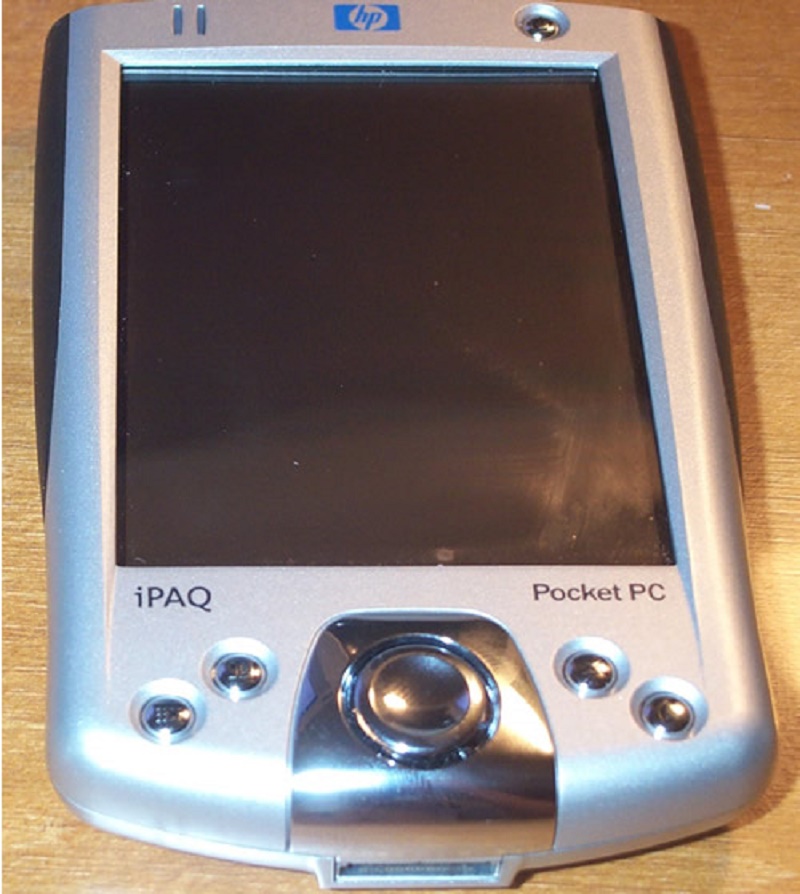
Then there was my blues harmonica phase (which lasted about 10 years until now), my guitar phase (which I revisited multiple times with varying degrees of failure), and my “let’s take apart every electronic toy in the house to see how it works” phase. My mom and brother were NOT happy about that last one.
But here’s the thing that really gets me thinking nowadays, I used to do all of this stuff just because it was fun at the time. No Instagram posts, no TikTok or Youtube videos, no pressure to monetize or optimize or turn it into a “side hustle.” I’d sing by myself in my room, not because I wanted to be a singer, but because it felt good. I’d play harmonica badly on the balcony of the apartment because the sound mixed with the Saigon traffic created this weird urban symphony that only I could appreciate.
🤳 Fast Forward to 2025: The Social Media Transformation
Now jump to today. I’m scrolling through Instagram and I see people turning their morning coffee into content. Their workout routines into monetization opportunities. Their weekend painting sessions into courses they’re selling for $100. And I’m like… wait, when did we decide that everything we enjoy doing has to become a business?

Once a girl told me that: “If it was a hobby and now it’s a job, there might not be fun as it was.” That strucked me hard though thinking about that now.

Don’t get me wrong, I’m not against people making money from their skills. Hell yeah, I work in tech and I’ve definitely turned some of my random interests and ideas into career advantages. But there’s something about the PRESSURE that feels different now.
Like, I picked up my harmonica again a few months ago. Just for fun, you know? But within 5 minutes, I caught myself thinking: “Should I be recording this? Could I start a Vietnamese blues harmonica YouTube channel? Maybe teach online lessons? Make passive income with passion?”
And that’s when I realized – the freaking algorithm has gotten into my head. Even when I’m alone in my room, there’s this little voice that’s like “But Lee, you could be building your personal brand right now.”
🎨 The “Tài Lẻ – Talent” Dilemma in the Digital Age
Here’s what I’ve been struggling with: In Vietnamese culture, being “nhiều tài lẻ” was never really considered a bad thing. Sure, it meant you weren’t a specialist, but it also meant you were curious, adaptable, willing to try new things. My aunts would be like “Ơ thằng Cương biết cả vẽ, cả điện tử, cả kèn với ghi ta nữa!” (Oh Lee knows painting AND electronics AND music too!)
But in social media land, being scattered feels like a disadvantage. The algorithm rewards consistency. Pick a niche. Become THE guy for that thing. Build your audience around your expertise.
They say, “pick a niche” as always!!!
Anyone
So what happens to people like me who just… like trying different stuff?
Vietnamese Context: I remember my old teacher in secondary school used to say “Biết nhiều thì mới hơn người được” (A person needs to know various things to survive). For me at the time, my dad was the one who could do anything and I felt really secure being in the family.
But now? Now I feel this weird pressure to pick a lane and stick to it.
🤖 Then AI Showed Up and Made Everything Weirder
Just when I thought I had figured out the social media game, AI burst onto the scene like that friend who shows up to karaoke, be an ace, and suddenly everyone realizes they can’t actually sing.
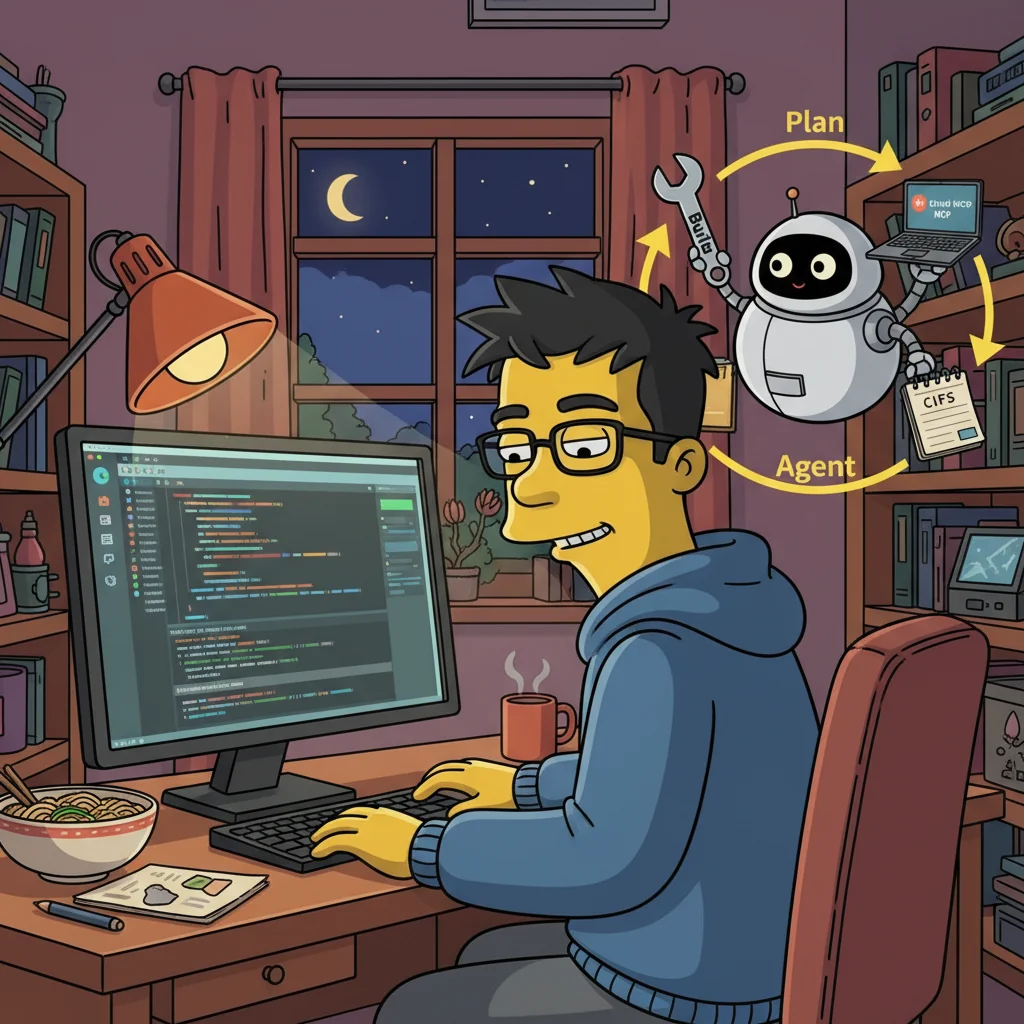




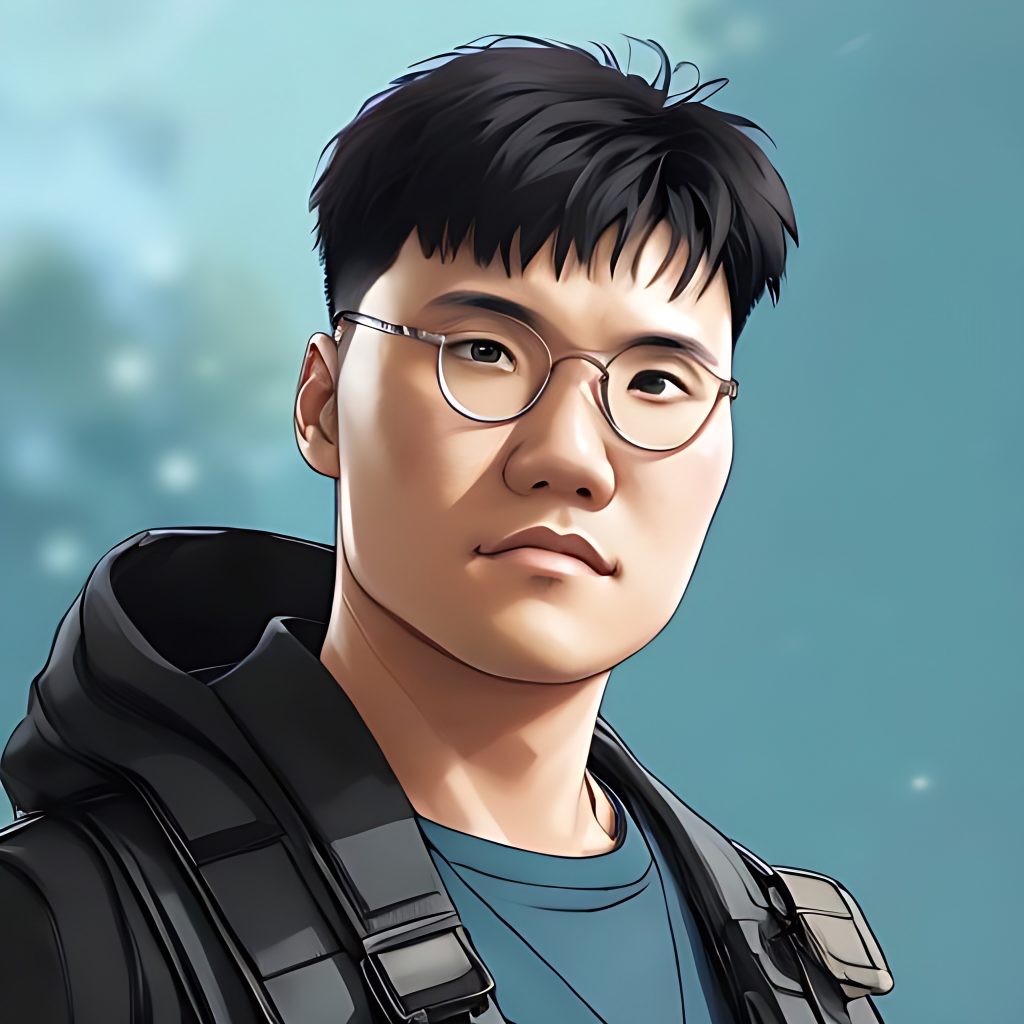
Now I’m watching people use ChatGPT to write their Instagram captions, DALL-E or Sora and now Nano Banana to create their art, and AI tools to optimize their content for maximum engagement. And I’m sitting here with my actual pencil like… am I doing this wrong? Where is the good old day when someone can draw something out of thin air by himself?
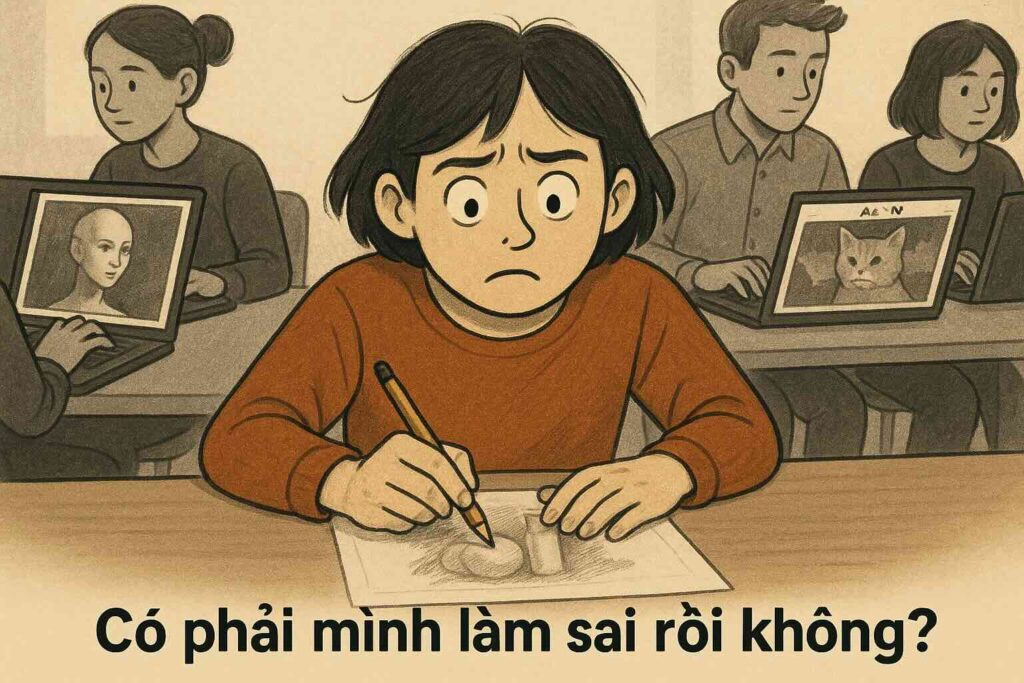
The crazy part is, AI is actually really good at those scattered “nhiều tài lẻ” skills. It can paint, write, compose music, code, analyze data; basically everything I spent years learning to do poorly, it can now do pretty well in seconds.
So where does that leave hobbyists like me?
🎯 What I’m Learning About Keeping Hobbies… Well, Hobbies
After months of overthinking this (which, let’s be real, is also one of my hobbies), I’ve come to some conclusions. And by conclusions, I mean “things I tell myself so I can sleep at night.”
The Sacred No-Phone Zone
First discovery: I started putting my phone in another room when I do certain activities. Sounds simple, but it’s been HUGE. When I play guitar now, I’m not thinking about recording. I’m just… playing. Badly, most of the time, but with genuine enjoyment.
Last week I spent two hours just noodling around on my guitar, playing old Vietnamese songs my mom used to hum. No recording, no posting, no “content.” Just me, the guitar, and some seriously questionable chord progressions. And you know what? It felt like being a kid again.
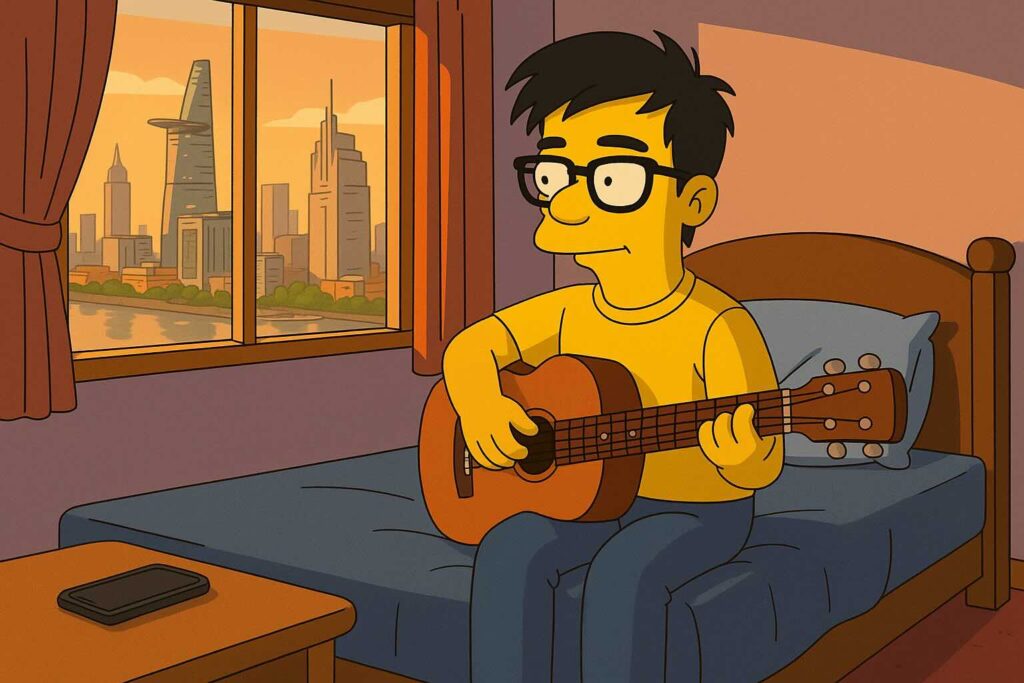
The “Not Everything Needs to Be Shared” Rule
I’ve started keeping some hobbies completely private. Like, I’ve been learning to crochet myself (don’t ask why, it started during a particularly stressful week at work), and nobody knows about it. Not Instagram, not LinkedIn, not even my closest friends and.. now you know, arhh.
There’s something weirdly powerful about having a skill that exists just for you. It’s like having a secret garden, except instead of flowers, it’s tiny paper birds that I make while listening to lo-fi music.

The “Vietnamese Grandma Test”
I think this mental test work for me: Ask question like: Would my grandmother approve of how I’m doing this hobby? She used to spend hours crochet that clothing pieces by hand, not because she was building a fashion empire, but because she found it meditative and beautiful. She’d give them away to family, never sold them, never posted about them.
That’s become my baseline: Am I doing this with the same energy as Bà Ngoại embroidering? Present, focused, content with the process itself?
📱 The AI Reality Check
Here’s where it gets interesting with AI. Instead of seeing it as competition, I’m starting to see it as… liberation? Like, if AI can generate a decent watercolor landscape in 30 seconds, then my terrible watercolor landscapes don’t need to be commercially viable. They can just be… mine.
Vietnamese Insight: “Mình làm cho vui thôi” (I’m just doing it for fun) – this phrase is becoming my mantra.
AI has actually freed me from the pressure to be the best at my hobbies. I don’t need to be the most skilled harmonica player on YouTube because honestly, AI will probably be able to generate harmonica music soon anyway (it already does). But AI can’t replicate the feeling I get when I play a song that reminds me of my childhood, or the satisfaction of finally nailing that blues riff I’ve been working on.
🎨 The Real Value of “Tài Lẻ” in 2025
You know what I’m realizing? Being “nhiều tài lẻ” is actually a superpower in the age of AI and social media. Not because I’m the best at any one thing, but because I understand the creative process across multiple domains.
When I’m stuck on a work problem, sometimes the solution comes from something I learned while trying to paint landscapes. When I’m writing code, I think about rhythm and harmony from my music background. When I’m debugging, I use the same patient, iterative mindset I developed from folding origami cranes.
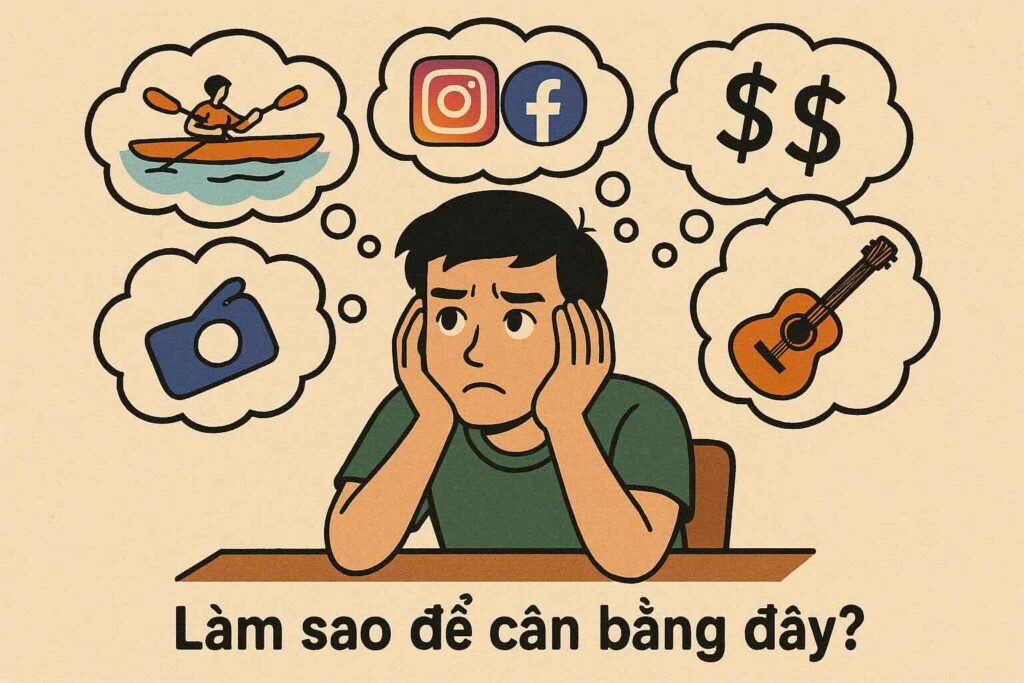
That connection-making ability? AI can’t replicate that. AI knows how to paint OR write OR compose, but it doesn’t know what it feels like to transfer the patience you learned from watercolor painting to debugging a stubborn piece of code.
The Product Manager’s “Nhiều Tài Lẻ” Advantage


Let me get specific about how this plays out in my actual work as a Product Manager:
- From guitar tuning to user research. Ear training helps me catch the subtle differences between what users say they want versus what they actually need. Last month I noticed a user pausing before saying “yes, that feature would be helpful” — that hesitation told me more than their words.
- From watercolor mistakes to agile iterations. You can’t undo a watercolor stroke; you adapt. That mindset keeps me calm when stakeholders want “quick” pivots mid-sprint. Beauty comes from layers, not perfection on the first try.
- From MP3 collection taxonomy to information architecture. My obsession with organizing music libraries translates directly into structuring user flows. I think about how someone will navigate features the same way I sorted tracks by mood and era.
- From electronics tinkering to systems thinking. Breaking toys taught me how interconnected parts can be. So when engineering says “this tiny tweak will break everything,” I believe them because I’ve seen one loose wire take down the whole system.
- From harmonica breathing to stakeholder management. Breath control and timing matter. In tough meetings I lean on the same rhythm — pause, push, listen — because silence can be more persuasive than a rushed argument.
🇻🇳 Vietnamese context: When I explain complex product decisions to local stakeholders, I borrow metaphors from cooking or crafts I learned at home. “This feature is like adding fish sauce — a little goes a long way, but too much ruins everything.”
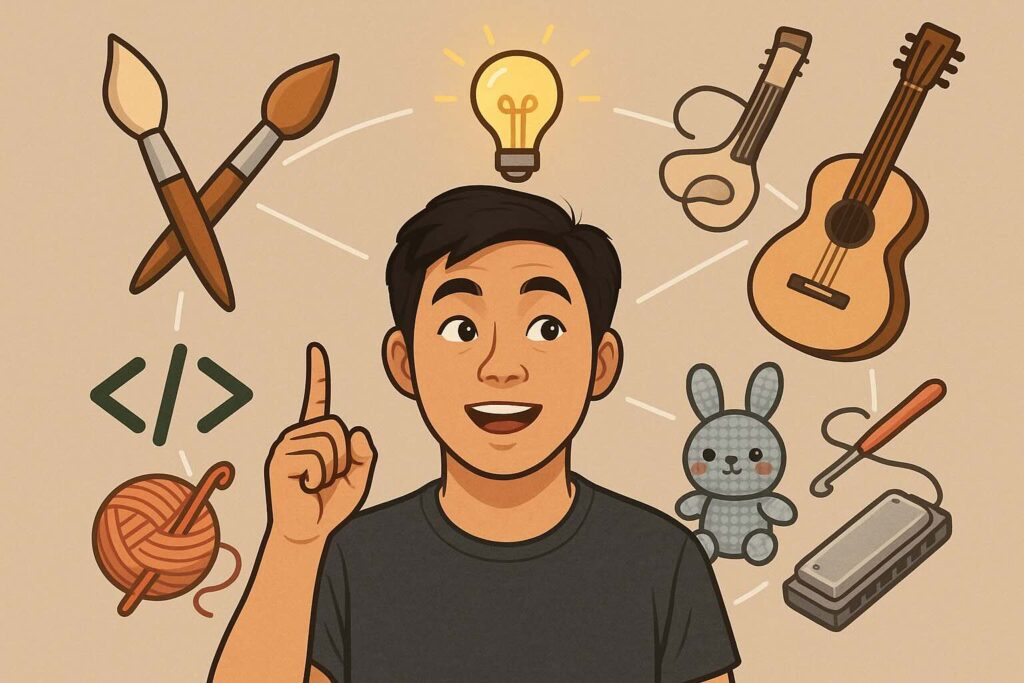
🤔 Questions I’m Still Wrestling With
But let’s be honest, I don’t have all the answers. I’m still figuring this out as I go.
Like, is it okay to sometimes share my hobbies? When does sharing become performance? How do I know if I’m doing something for genuine enjoyment or for the dopamine hit of likes and comments?
And what about the practical side? I mean, some of my hobbies have genuinely helped my career. My random interest in visual design made me better at creating presentations and wireframing UI for apps. My music background helps me understand patterns and rhythm in code. Should I ignore those benefits just to keep things “pure”?
Maybe the answer isn’t black and white. Maybe it’s about being intentional. Sometimes I paint because I want to share something beautiful with the world. Sometimes I paint because I need to process emotions. Sometimes I paint because I’m bored and it’s raining outside.

The key might be knowing WHY I’m doing it in that moment.
🌟 What’s Working for Me Right Now
Here’s my current system (and by “system” I mean “random collection of things I try to remember”):
- The 70-30 rule. About 70% of my hobby time is just for me — no phones, no sharing, no pressure. The other 30% can be social, shareable, whatever. This isn’t scientific, just what feels right.
- The Bà Nội question. Before sharing anything hobby-related, I ask myself: “Would Bà Nội bring this around the neighborhood xóm to show off to other grandmas?” Usually the answer is no, which helps me recalibrate.
- The joy check. If I catch myself doing a hobby and thinking more about the potential content than the actual activity, I pause and either put the phone away or just stop for the day.
- The “nhiều tài lẻ” pride. Instead of feeling scattered, I’m trying to embrace the connections between my interests. They make me uniquely me, even in an AI world.
| Approach | Old Mindset | New Mindset |
|---|---|---|
| Learning new skills | “I should master this” | “I wonder what this is like” |
| Sharing hobbies | “This could go viral” | “Someone might enjoy this” |
| Skill progression | “Optimize for results” | “Enjoy the process” |
| AI comparison | “AI does this better” | “AI can’t feel what I feel” |
| Vietnamese perspective | “Too scattered, pick a lane” | “Nhiều tài lẻ is my superpower” |
🎯 For Fellow “Nhiều Tài Lẻ” People
If you’re reading this and thinking “Yeah, this sounds familiar,” here are some things that might help:
- Give yourself permission to suck. I’m genuinely terrible at harmonica. Like, neighbors-probably-hate-me terrible. But I love the feeling of making sound with breath and metal, even if it sounds like a dying whale.
- Create hobby hierarchies. Some hobbies can handle social media pressure, others can’t. Protect the fragile ones.
- Remember that AI doesn’t have feelings. It can create art, but it doesn’t know the satisfaction of mixing the perfect shade of blue or the frustration of a guitar string that won’t stay in tune.
- Vietnamese wisdom still applies. Our grandparents were “nhiều tài lẻ” out of necessity and found joy in variety. We can too.
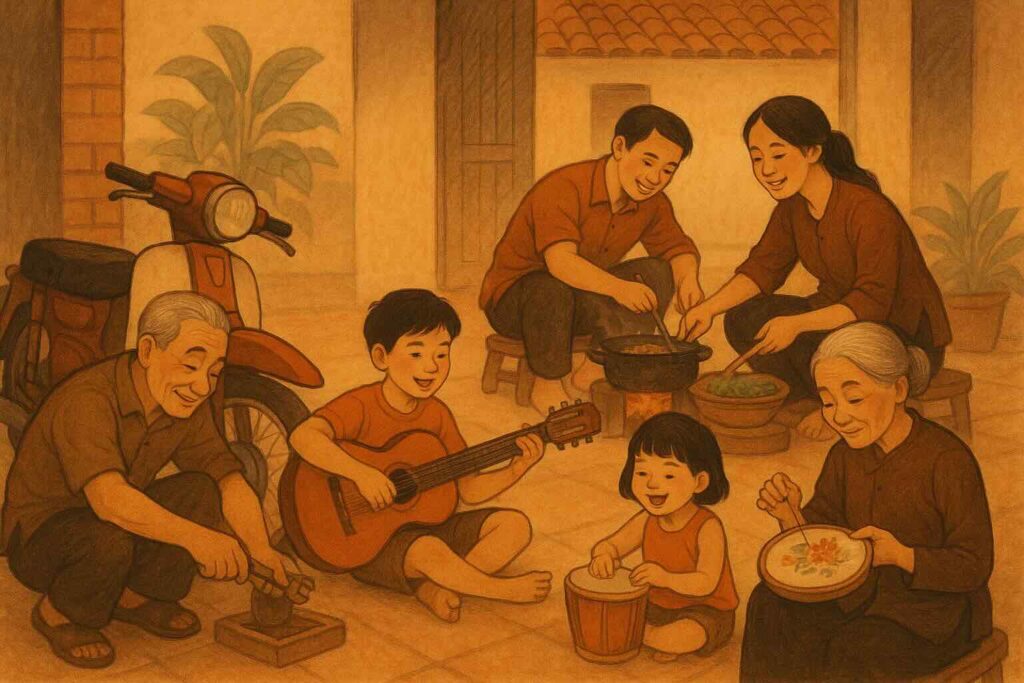
🏁 Where I’m Going From Here
I don’t know if I’ve solved anything by writing this. I’m still probably going to overthink whether to post my next guitar practice session. I’ll still feel that little pang of “could this be content?” when I do something creative.

But maybe that’s okay. Maybe the goal isn’t to completely escape the social media influence, but to be more conscious of when it’s helpful and when it’s harmful.
What I do know is that when I picked up that harmonica last night and played some random blues riff while looking out at the Saigon traffic, I felt something that no algorithm could optimize and no AI could replicate. It was just… mine.
And in a world where everything is becoming content, having something that’s just yours feels pretty revolutionary.
TL;DR for Busy People:
- Being “nhiều tài lẻ” (scattered talents) is actually valuable in 2025, especially with the existence of AI
- Not every hobby needs to be content or income
- AI makes us more free to enjoy processes over products
- Vietnamese cultural wisdom about variety still applies
- Keep some things sacred and phone-free
Kết thúc: Mong được nghe góp ý và trải nghiệm của bạn về việc giữ sở thích trong thời đại mạng xã hội! Are you also “tài vặt”? How do you balance sharing vs keeping things private? 🎨🎵📱
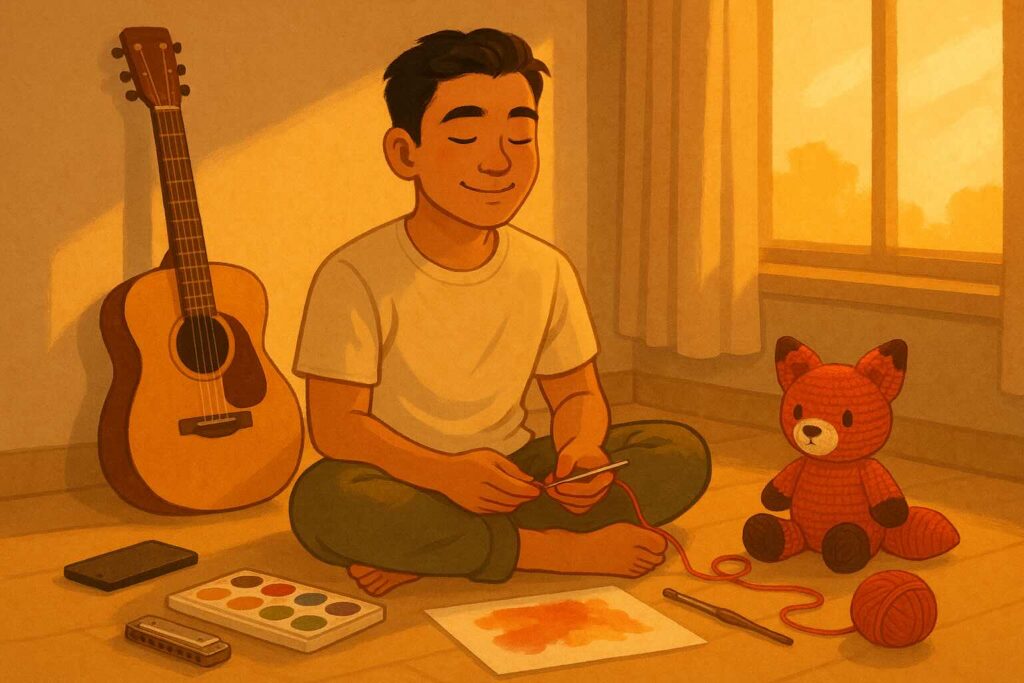
Written while listening to random Vietnamese oldies and definitely overthinking whether to post this or not. The irony is not lost on me.

